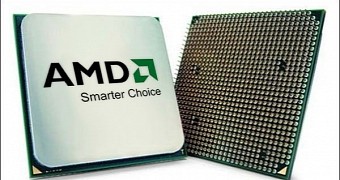Following yesterday’s revelations that two hardware bugs are affecting a large number of processors built after 2010 by Intel, AMD, and ARM, new information is coming to light. Now AMD is saying that it’s mostly not affected by this problem.
While details were sketchy at first regarding a couple of hardware bugs, the floodgates quickly opened, and the two bugs got proper names. In fact, this is one sure way to see, as a user, if a reported vulnerability has damaging potential. When it’s baptized with a proper name, things get serious.
The two hardware flaws are called Meltdown and Spectre, and in theory, they could provide attackers to access data that’s stored in the kernel during execution. As it stands right now, this is just a flaw, and it looks that no one is using as a vector of attack.
Nonetheless, the problems are serious, and they will require a redesign of the processors. This means that patches should suffice for now, but the proper fix will be available only in future generations of CPUs.
Intel says it’s not the only one affected
When the story broke about these flaws, Intel was believed to be the company affected, but they quickly responded and revealed that’s not the case. We later learned that AMD and ARM would also have to patch some of the issues in their processors as well.
As you can imagine, patches have been devised already for the Linux platform and deployed, along with Windows. Mac OS is getting a patch later this month. But hardware flaws are more problematic than regular software issues. It’s believed that CPUs will take a performance hit, although at this moment no one can really tell just how much.
It’s easy to see why companies are quick to point out that they are not the only one affected. Intel pointing fingers at AMD seems like “good” business strategy.
AMD says its CPUs are not at risk
Of course, AMD had to respond to Intel allegation. According to a report on cnbc.com, the difference in architecture between Intel and AMD takes them at almost zero risks to their CPUs.
“To be clear, the security research team identified three variants targeting speculative execution. The threat and the response to the three variants differ by microprocessor company, and AMD is not susceptible to all three variants. Due to differences in AMD's architecture, we believe there is a near zero risk to AMD processors at this time,” an AMD spokesperson said.
No company wants to be in hot water with such a severe problem, especially since it opens them up to class action lawsuits for shipping defective products, and it can lead to massive recalls.

 14 DAY TRIAL //
14 DAY TRIAL //